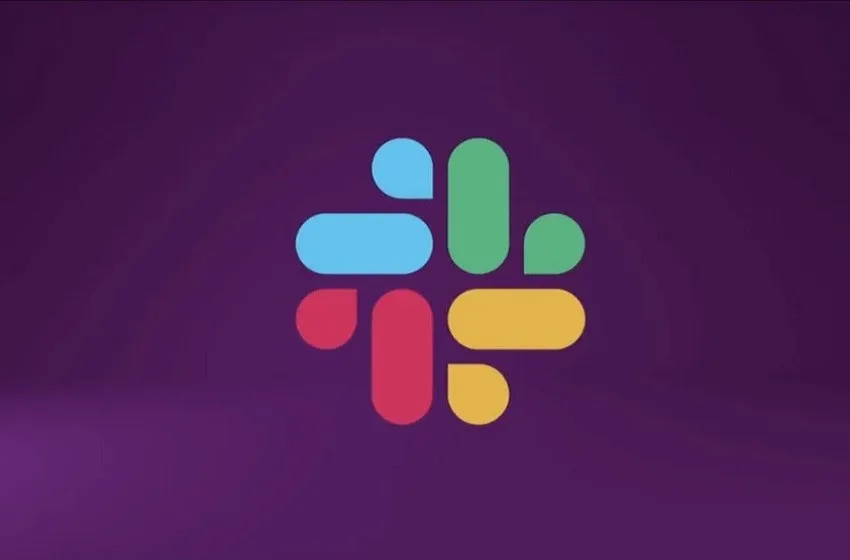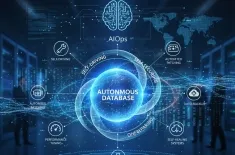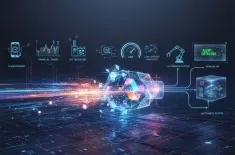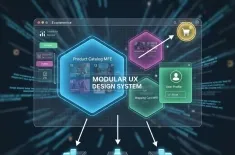Slack is evolving into an AI agent hub, integrating powerful AI tools to boost team productivity and enhance collaboration. Discover how this transformation is reshaping workplace communication and efficiency at Habertalya. Stay informed on the latest advancements in AI-driven solutions.
Denise Dresser, the head of Slack, recently spoke with TechCrunch, detailing her vision of transforming the business communication platform into a comprehensive “work operating system.” This shift will make Slack a central hub for AI applications from major companies like Salesforce, Adobe, and Anthropic. Dresser envisions Slack as more than just a messaging platform; however, it raises the question—do users desire this change, and if so, are they willing to pay extra for it?
On Monday, Slack unveiled a range of new features aimed at a higher-priced subscription tier, known as Slack AI. Among the updates are AI-generated summaries of Huddles, mirroring the channel summaries available to its existing premium subscribers. Additionally, users can now interact with Salesforce’s AI agents directly within Slack, as well as utilize various third-party tools for AI web searches and image creation.
Salesforce acquired Slack in 2021, shortly after the platform became essential for remote work for countless users. Now, three years later, Salesforce is making a significant pivot towards AI agents, prompting Slack to follow suit. Dresser believes that Slack is ideally positioned to facilitate interactions with AI agents, as it serves as a key communication space during the workday.
AI is presenting a new way to engage with technology that feels very natural for Slack: it’s conversational, it facilitates information sharing, and it allows users to take action seamlessly within their workflow, Dresser explained in a recent interview.
There’s probably no better platform than Slack for users to do all of this.
But the question remains: Why does Slack need to integrate AI? Since the debut of ChatGPT in 2022, many companies have rushed to add AI features, aiming to project a cutting-edge image—even when such integrations may not align perfectly with their core offerings. The introduction of AI agents in Slack might fall into this category.
Dresser defends this move, arguing that Slack is more than just a messaging service; it’s a digital workspace, a "work OS" that integrates people and processes. She mentions that CEOs across companies are demanding AI functionalities to quickly catch up on team conversations or to unearth valuable information from complex databases. These are just a few of the ways Slack is ushering in the AI era, according to Dresser.
One of Slack's new AI offerings, called Agentforce, will enable Salesforce customers to analyze business data on-demand directly within the app. Similar functionality will be provided by agents from Cohere and Anthropic, available to enterprise AI service subscribers.
Furthermore, Perplexity will introduce an agent that facilitates web searches within Slack, while Adobe Express’s Slack agent will allow users to create branded content based on text prompts directly within the messaging environment.
Recently, Klarna's CEO stirred conversations by expressing plans to replace Salesforce and Workday with internally developed AI solutions. In July, Andreessen Horowitz partners speculated that businesses may transition away from costly CRM services in favor of homegrown AI tools. In response to Klarna’s stated intentions, Salesforce CEO Marc Benioff has expressed skepticism and is awaiting tangible evidence of their capabilities.
When asked about Klarna’s comments, Dresser emphasized that enterprise AI solutions must be reliable and secure—qualities Salesforce is focused on ensuring for their clients.
This commitment to building trust was put to the test earlier this year when Slack faced criticism for defaulting to using customer data to train a recommendation system. Developers uncovered references in the privacy policy indicating that Slack was using customer data to enhance emoji recommendations, though it was clarified that this data was not utilized to train the underlying large language models for Slack AI. Nevertheless, the privacy policy suggested that users had to actively request that their messages not be included in Slack's training data.
Slack maintains that it does not train its AI on customer data and reiterates this stance. "No LLMs are trained on Slack data, period,” stated Rob Seaman, the chief product officer, in an interview with Habertalya. “There was a misstep and an update to our policy that we could have managed better. In an age where AI awareness is heightened, this became a point of concern we wish hadn’t arisen.”
As Slack continues to deepen its focus on AI, privacy issues are likely to surge in importance. The platform is evolving from a traditional messaging service to one where AI tools actively manipulate and gather information. Users may justifiably approach this shift with caution as AI integrates into their workflows.



































